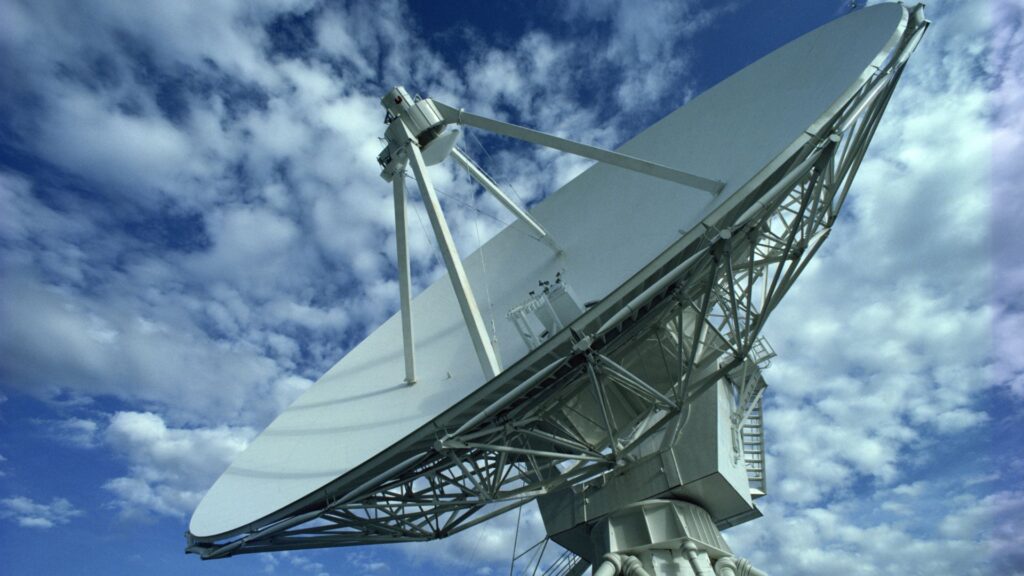

Sofia Tirini
Public Sector


The Communications and Information Technology Commission (CITC), Saudi Arabia’s digital regulator, has been working in the last couple of years to improve and update the regulatory framework on the space sector, in order to boost opportunities for current and potential players.
The space sector, and satellite services are a priority area of work for the Kingdom, who aims to become the next satellite services leading market in the region. Therefore, the Kingdom is building stronger and more transparent regulations, in accordance with best-practices and international recommendations and is creating an encouraging regulatory environment that promotes investment, facilitates the adoption of the latest technologies and contributes to the thriving digital economy in the Kingdom.
For this reason, on Tuesday 20, September the CITC issued the new Non-Terrestrial Networks (NTN) regulations, that is divided into three main documents:
The new regulations replace several previous regulatory documents, streamlining the procedures to obtain the licenses to provide satellite services in the Kingdom, under the same unified regulation rather than separate permits per services. These regulations are built under a technological neutral approach that allows for the provision of traditional services as well as newer and innovate applications, such as IoT, HAPS, and ESIMs. Regarding ESIMs, these are defined as provision of telecommunication services that are using identical earth station systems operating on means of transport (including vessels, aircraft, or any other vehicles), additionally, foreign registered ESIMs crossing the Kingdom are expressly exempted from licensing.
The regulations differentiate providers of electronic communication services (“Regulations for Provisioning of Operation Services of Non-terrestrial Networks (NTN)”) and operators of electronic communication networks (“Regulations for Provisioning of Telecommunication Services over Non-terrestrial Networks (NTN)”), following the approach adopted across several jurisdictions, including the EU, where the distinction is made between ECS and ECN providers and operators. To apply for either license undertakings will require a valid General Class License, pursuant to the modifications introduced earlier this year, supressing the Class B license previously required in the Kingdom. The new framework determines on general license whether for network or services, as long as certain requirements are fulfilled.
Furthermore, it is important to mention the publication of the “Frequency Use License Remuneration Regulation” that contains the latest fees applicable to all spectrum licenses, available here (only in Arabic).
Overall, the objective of these new regulations is to provide communication services using cutting-edge wireless technologies and enable the wide spread of NTN technologies by following the principle of “technology-neutral”.
Additionally, a new “Regulation for Registration of Telecommunication Space Stations” is introduced in order to keep a national registry of providers of foreign satellites operating over the Kingdom to provide satellite capacity. Although the Kingdom did not previously have landing right requirements, the new registration is designed to avoid the imposition of overcomplicated requirements. The registration is a fast process of roughly 20 days, with no cost and no limits in advance in terms of expiration. All current and new foreign satellite systems operators are now required to enter the registry to provide satellite capacity in the Kingdom and all ground segment operators must ensure they only procure satellite capacity from duly registered foreign satellite systems operators.
On top of the latest updates and improvements to their regulatory framework, the Kingdom of Saudi Arabia is hosting one of the biggest events of the year, called “Connecting the world from the Skies”. This event will be organised in partnership with the International Telecommunication Union (ITU) and the collaboration of the Saudi Space Commission (SSC). This hybrid forum will take place from 8 – 10 November 2022, and will discuss extensively airborne and spaceborne networks, from space, science, technology, and policy perspectives. Those interested in attending the event can register here.
If you are interested in learning more about the new regulatory framework in Saudi Arabia, contact Juliana Ramirez or Sofia Tirini, Compliance Manager, Access Partnership.

